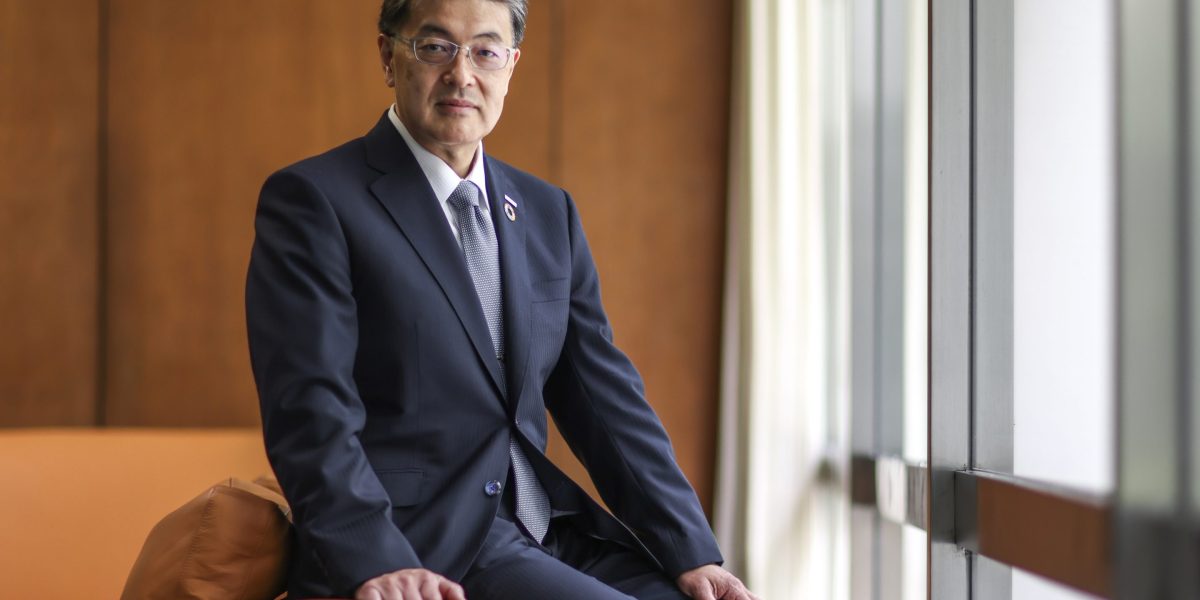
Panasonic Holdings Corp.’s managers need to feel more of a “sense of crisis” given the company’s low profitability and will be judged accordingly, Chief Executive Officer Yuki Kusumi said.
“If they don’t produce results, they will have to be replaced,” Kusumi said in a recent interview. “The reason for not producing results is the lack of a sense of crisis.”
Those are unusually harsh words in Japan, and especially at Panasonic, where the notion of lifetime employment was embraced for years. Two months ago, Kusumi warned in a strategy briefing that the Osaka-based Japanese electronics maker was falling behind on its profitability targets, and that he would reduce the number of “businesses with issues” to zero by March 2027.
Panasonic’s shares are down 4% this year, after climbing 26% last year. At the same time, Japan’s stock market has been rallying to multidecade highs, with the benchmark Topix Index up around 22% this year.
Once a global leader in consumer electronics, Panasonic is now a key battery supplier to Tesla Inc. and investing in software, while seeking to retain its relevance in appliances and industrial devices. The slowdown in demand for electric cars has impacted some of its battery factories, resulting in the halt of some production lines at its Suminoe factory in Osaka, the CEO said.
“Where I have most concern is that we haven’t achieved the profitability required to gain the support of investors,” Kusumi said. “Although stock prices in Japan are rising, our shares are stuck at around ¥1,300.”
The fact that Panasonic is trading below book value is cause for concern, the CEO said. The Tokyo Stock Exchange has been on a crusade, backed by the government, to get Japanese companies to improve their market value relative to their total net assets, in order to boost the ratio above 1.0.
Panasonic’s price-book ratio currently stands at 0.7, according to data compiled by Bloomberg. Hitachi Ltd., another electronics conglomerate that restructured and sold off assets, trades at around three times book value.
Panasonic adopted a holding company structure two years ago, a revamp aimed at making each division more accountable for its performance. That also made it easier for Kusumi to forge deals like the one involving its automotive systems unit, part of which is being sold to affiliates of Apollo Global Management Inc. for ¥311 billion.
Kusumi is pushing to improve the profitability of underperforming units over the next two years while considering whether Panasonic is the “best owner” for the businesses. While that doesn’t necessarily mean the goal is to sell, the CEO explained that they will have to stand and survive on their own.
After taking over as CEO in mid-2021, Kusumi has been seeking to free up more cash to invest in areas of growth. He’s set goals to achieve a return on equity of 10% or more and cumulative operating profit of ¥1.5 trillion for the two fiscal years through April of next year.
Konosuke Matsushita, who founded the company that bore his name until it was changed to Panasonic in 2008, is sometimes referred to as the “god of management” in Japan. He espoused principles such as cooperation, humility and contribution to society as key pillars for any successful company. By the same token, Matsushita also pushed for adaptability and continuous improvement.
“Management, especially upper management, such as division managers and the presidents of the business units, need to feel a strong sense of crisis about the lack of results,” Kusumi said.
CEO Daily provides key context for the news leaders need to know from across the world of business. Every weekday morning, more than 125,000 readers trust CEO Daily for insights about–and from inside–the C-suite. Subscribe Now.














